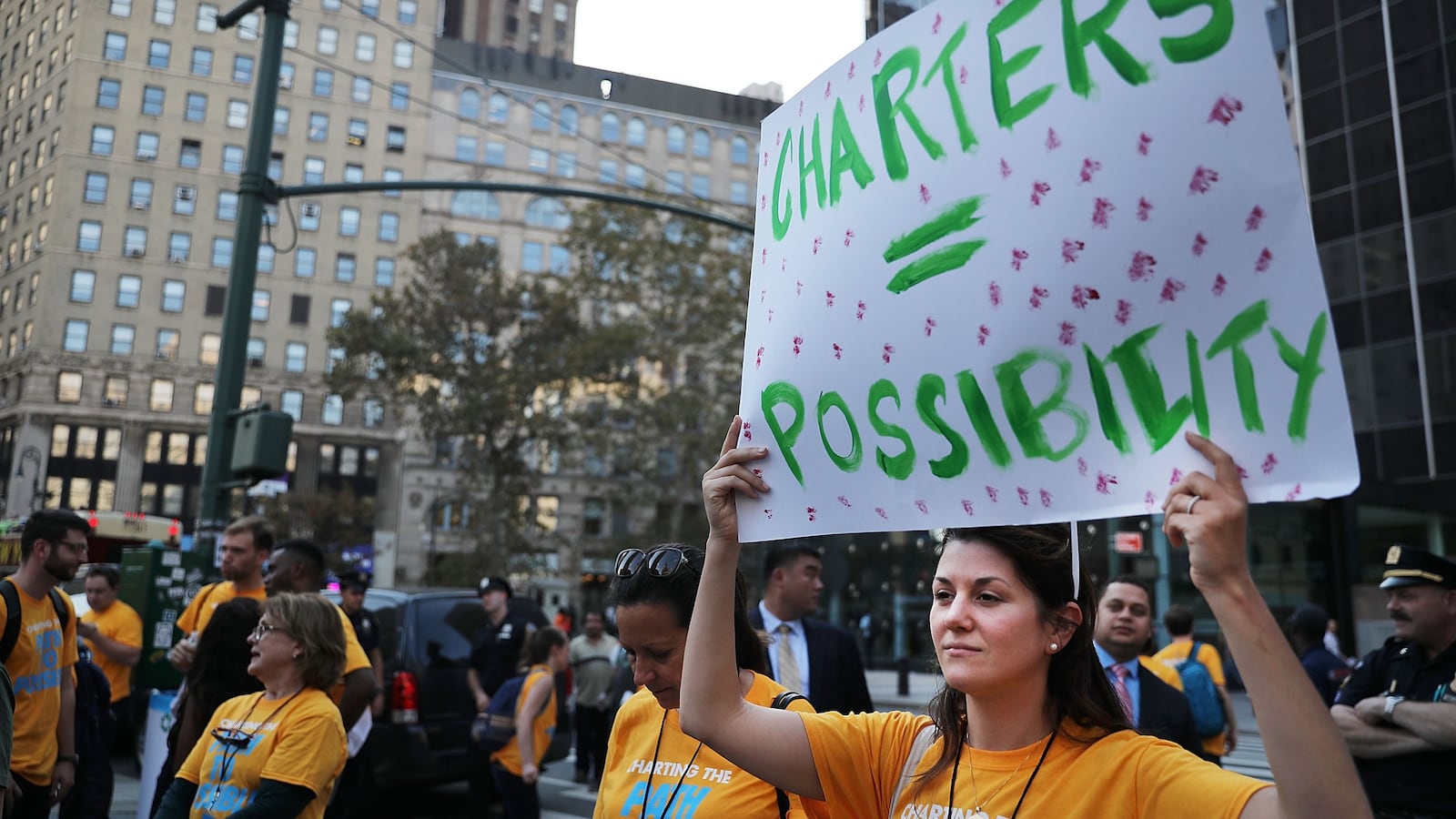The charter school movement is currently in a “battle for survival,” National Alliance for Public Charter Schools president Nina Rees told an audience of supporters on Monday.
Proposed limits on charter schools in California, the cap on new charters in New York City, and lawsuits in Alabama to prevent charters from opening — all are threats to the future of the schools, she said.
“We need to start fighting back against the attacks far more aggressively,” she told attendees at the opening session for the National Charter Schools Conference in Las Vegas, and suggested that charter leaders need to both expand their reach and improve their messaging.
“We are going to lose this fight if we can’t convince our school boards, council members, mayors, Congress, and governors that our schools deserve their support and our kids deserve charter schools,” she said.
Rees’ speech reflected the anxiety of the charter movement, which once operated with high-profile support from members of both parties but has come under attack from more Democrats over the last few years. Recent polling has shown a sharp dip in support for charters among white Democrats, even as support among black and Hispanic Democrats has held steady. Rising opposition may be due to hostility toward U.S. Secretary of Education Betsy DeVos, a prominent charter backer, and concerns about the financial impact of charters on school districts.
Policymakers have put (or promised) new limits on their growth in cities including New York City, Chicago, and Denver, and many of the Democratic presidential candidates have been cool or even openly hostile to charters on the campaign trail.
Nationwide, charter schools serve 6% of public school students, though that number is much higher in many cities. Although growth in the charter sector has slowed, it hasn’t reversed, and some states like Florida have continued to be hospitable to charters.
But the shifting political dynamics have some charter leaders nervous about the future. In her speech, Rees argued that charter schools, which are mostly in urban areas, need to grow into suburban and rural areas for “political survival.”
“We need to be a presence in more neighborhoods, more towns, and more congressional districts,” Rees said.
The charter movement will also depend, she said, on the ability of school leaders to attract public support the way recent teachers strikes have. The National Alliance for Public Charter Schools recently started a petition “to let Bernie Sanders and the 2020 candidates know that we will not tolerate these attacks on our children.”


